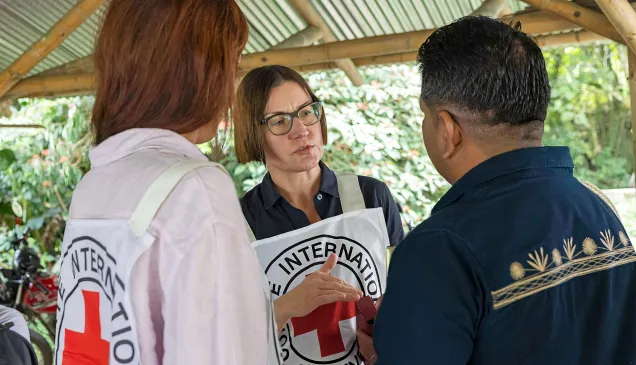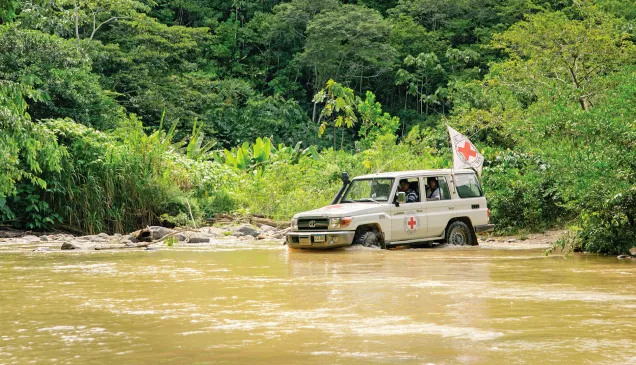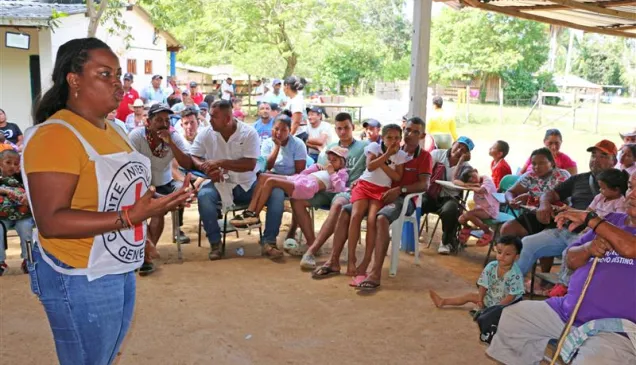Colombia: Losing a limb to explosive remnants of war
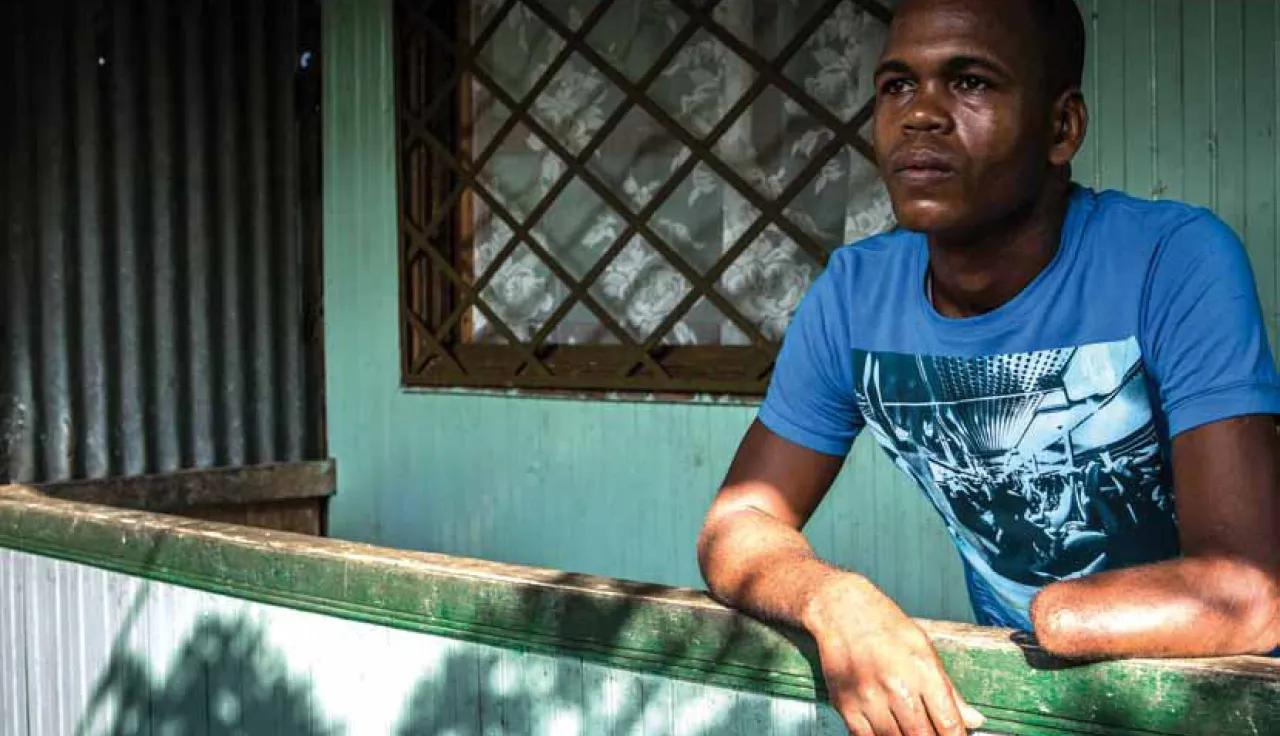
"How can we leave, when we have nowhere to go?"
Édinson picked up an explosive device by mistake. The explosion not only blew off his hand, it also led to the displacement of his whole family.
"My name is Édinson and I'm 27 years old. I was born in Chocó. At the time, I was working on a farm, and my wife stayed at home looking after the children. One day, I was going to clear some land and saw a can on the ground.
I picked it up and it was then that I realized it had a mechanism. Just as I was going to throw it, it exploded in my hand and I passed out.
"A cousin came and fetched me. He borrowed a vehicle and took me to Puerto Meluk, but there was no hospital there where I could get medical attention. He took me to Istmina, but they didn't do anything there either. They sent me to Quibdó, and I spent three days there in hospital. The ICRC arranged for me to be sent to Bogotá. They took me to see a doctor and paid my expenses. Then I was moved me to Medellín because my hand became infected and I lost it. With their help, we returned to Chocó.
"A month after we got back, they started putting leaflets under our door. My wife said that we should go, but I said: 'How can we leave, when we have nowhere to go?' I had 150,000 pesos and we managed to get to another city.
We called a friend and she helped us with the fare to get to her house in another area. Now we are living with her in her house.
"Here, the ICRC is still helping us. For example, we were able to buy some clothes for the children, and my wife is training to work in a hotel. I earn some money when a friend who works at a fishery calls me to help unload crates when boats come in. Sometimes it's difficult for me, because I have shrapnel in my body and only one hand, but I have faith that my wife and I will eventually get a job".
The ICRC's response
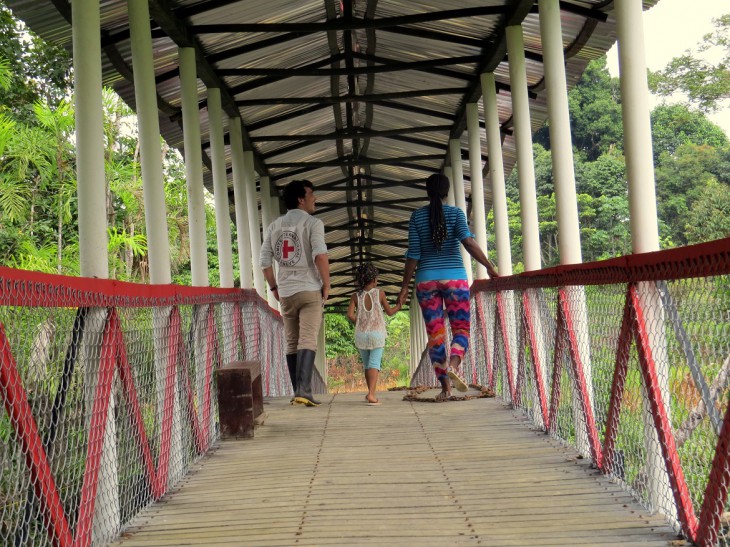
Vereda Balsora, Putumayo. Thanks to the river over the River Piñuña Negro, built by the ICRC, there is much less risk of a child stepping on an explosive deveice on the way to school. CC BY-NC-ND / ICRC / Andrés Monroy
Action in 2014
In addition to providing guidance for communities on how to prevent accidents resulting from weapon contamination, the ICRC also helps victims to get the care they need.
- With a view to reducing risks, the ICRC and the Colombian Red Cross Society trained 11,500 people, including 1,700 people living in urban areas, in safe practices that can help prevent accidents caused by improvised explosive devices, explosive remnants of war and small arms.
- The ICRC provided around 200 people who survived accidents caused by weapon contamination and the families of people who were killed with guidance on their rights and their entitlement to reparation, providing information on the channels and procedures for claiming financial compensation from the government.
- Some 1,800 survivors received medical care, thanks to the assistance and financial support provided by the ICRC.Some 130 victims of weapon contamination benefitted from physical rehabilitation. In addition to receiving physiotherapy, they were provided with orthopaedic and prosthetic devices, wheelchairs, food and transport. Some of them received care at one of the four rehabilitation centres supported by the ICRC.
- At least eight infrastructure projects, including school facilities, water supply systems and a bridge, helped to prevent accidents.

